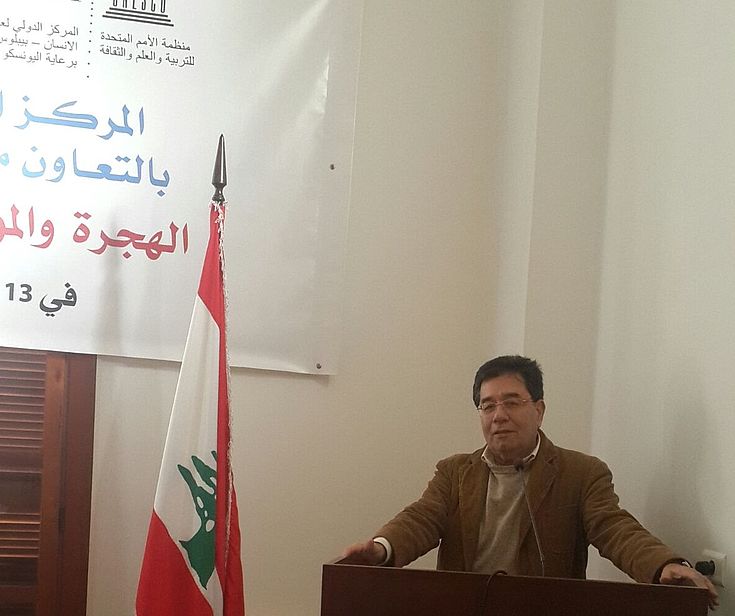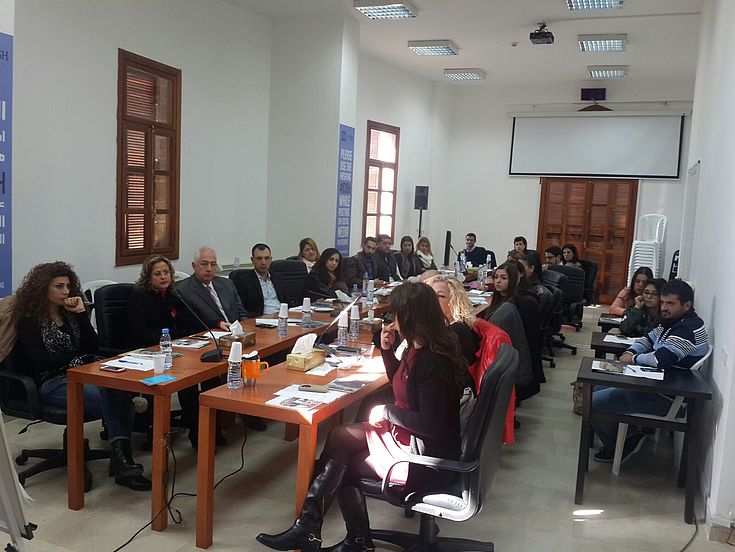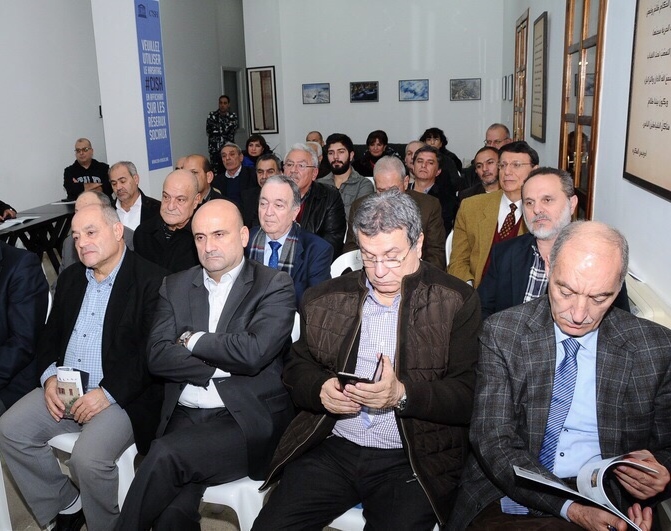What's happening at HSS?
Symposium on 'Migration, Citizenship and Refugee Movements' from January 13 - 15, 2016 in Byblos / Lebanon
Migration and refugee movements in the Mediterranean countries have gained unprecedented momentum in recent months. The situation along migratory routes to Europe and within Europe itself is changing faster than ever before.
Emigration nowadays is a growing phenomenon happening in the Middle East causing many disadvantages on mother countries. And as it’s well known that e.g. the majority of Lebanese emigrants are of the Youth. The absolute majority of males who’ve considered emigrating are less than 25 years old; males' or females’ percentage is nearly the same. The high percentage for both sexes might be justified by the fact that youth Lebanese don’t foresee a professional future in their mother country Lebanon. Another reason might be that youth are too ambitious to think of success inside a country being instantaneously sheared by political crisis and careless about development. Low job opportunities, poor wages distributions and instability are affecting youth emigration.
Representatives from ...
In this regard the symposium, which was conducted in co-operation with the 'Centre International des Sciences de l'Homme - CISH' in Byblos, aimed to take Lebanon as a case study to examine the relationship between human development and emigration. It examined this issue from both ends, the sending (emigration) and the receiving countries (immigration) as well as the issues of identity, citizenship and transnational's in the context of Lebanese migrant experience abroad. For the development of a country it is necessary to avoid the brain drain and with regard to the elderly society it can also have negative aspects when the young Lebanese are eager for success outside their mother country. The Lebanese emigrants e.g. have developed a transnational diasporic civil society and a diasporic public sphere. This is shown by reference to various organizations and associations that the Lebanese have created in the host countries and their continuous preoccupation with home related family, social and political issues.
... various organizations participate.
Another focus was the refugee crisis in Europe. Europe is experiencing one of the most significant influxes of migrants and refugees in its history. Pushed by civil war and terror and pulled by the promise of a better life, hundreds of thousands of people have fled the Middle East and Africa, risking their lives along the way. The scale of the crisis has put huge pressures on some destination countries.
To ensure that the people have a true vision about the situation the following issues were addressed and discussed openly:
- Asylum in the European Union / Regulations
- Why is EU struggling with migrants and asylum?
- Challenges and problems of integration (growing number of Muslims and problems of integration in European countries, different culture and behaviour, already existing problems are exacerbated (e.g. problems with adolescents with immigrant backgrounds, born in Europe but not integrated into the society, need of adaptation/ recognition of rules and values of the receiving country)
- The asylum policy of Germany and rumors about fairytale conditions trigger people to leave to Germany
- Need of support for countries like Lebanon or Jordan
On the last day working groups discussed some specific issues related to the context of the previous days in order to nourish some level of debate and to exchange useful ideas.
The participants agreed about that migration can have positive and negative impacts on both the host (recipient) country (immigration), and the original country (emigration). And they stated that there are also numerous drawbacks like
- Immigrants can be exploited for their cheap labour.
- Developing countries may suffer “brain drain” as the limited resources they spend in educating their student’s amount to very little if that talent is enticed to another country
- Immigration can also attract criminal elements, from trafficking in drugs and people to other forms of crime and corruption.
- Immigration can become a social/political issue, where racism can be used to exploit feelings or as an excuse for current woes of local population.
- Where there is a perception that immigrants and refugees appear to get more benefits than local poor people, tensions and hostilities can also rise.
- Concerns about illegal immigration can spill over to ill-feelings towards the majority of immigrants who are law-abiding and contributing to the economy.
- Many die trying to flee their predicament, and this can often make sensational headlines giving the appearance that immigration is largely illegal and “out of control.”
- The growing number of Muslims in Europe and the problems they have integrating into European society.
- Threat of terrorism by refugees. Are they terrorists, radical fundamentalists, Islamic militants, or simply a new constituency who represent a clash of values between two old European parties, secular and conservatives, who are each struggling to come to terms with religious pluralism.
Participants of the three-day symposium were representatives from the religious parties, representatives from the political parties decision makers, representatives from different sectors (public, private, parliamentarians, NGOs, Municipalities), representatives from Ministries in Lebanon such as the Ministry of Social Affairs, the Ministry of Education, the Ministry of Foreign Affairs and Immigration and professors and students from several universities in Lebanon.
To get to know more about the 'Centre International des Sciences de l'Homme' (CISH) see website: www.cish-byblos@org



